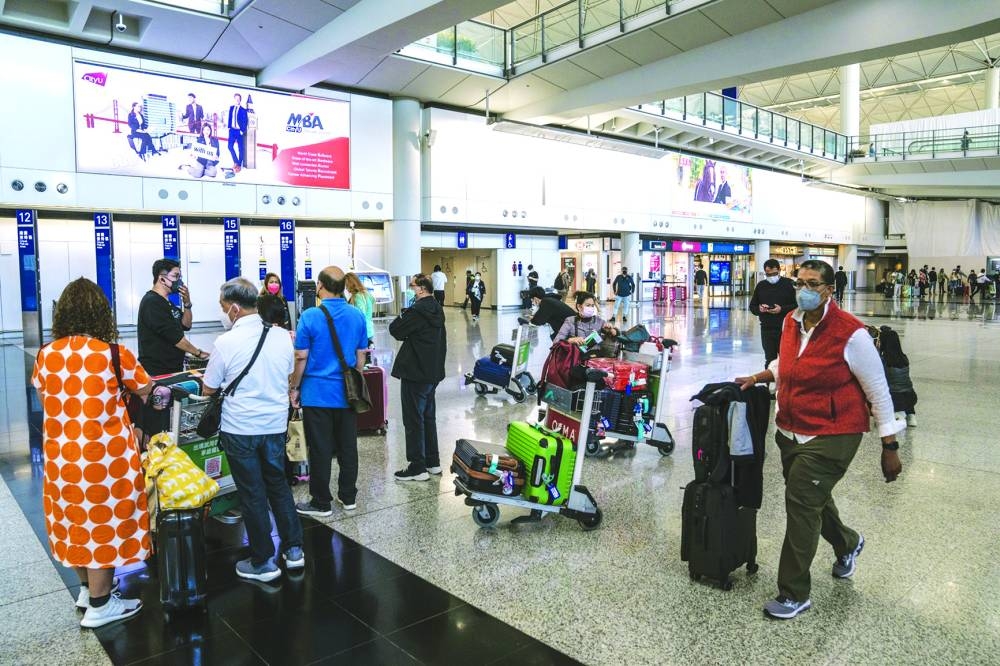After being confined indoors for nearly two years, many travellers around the world are now booking more trips than they did before the coronavirus era, to make up for lost time and reconnect with friends and family.
Obviously, travel is in greater demand these days even though ticket prices are skyrocketing.
Many airports have become chaotic because airlines are struggling to meet travel demands. Most countries have already reopened their borders and eased their Covid-19 restrictions.
As more and more welcome discerning tourists, a trendy new phrase has also emerged on social media – ‘revenge travel’.
“Revenge” generally has a negative connotation, but “revenge travel” can be interpreted as getting revenge against the pandemic, or against Covid itself.
It’s a way to show that travellers have gone past severe Covid restrictions and are finding joy through travel again. Probably, it’s a way to get revenge on the last two years.
“While the term may sound silly, ‘revenge travel’ refers to the idea that there will be a huge increase in travel as it becomes safer and things open back up,” points out Eric Jones, co-founder of The Vacationer.
Erika Richter, vice-president, American Society of Travel Advisors (ASTA) told CNN, “Revenge travel is a media buzzword that originated in 2021 when the world began to reopen, and people decided to make up for lost time.”
Industry analysts believe “revenge travel will be all the rage over the next few years” and they estimate “a surge in bookings” in the coming months and years.
In an attempt to gain back lost time that was taken during the pandemic, many people have begun booking trips, flights, and bucket-list destinations as many countries began reopening and allowing international tourists.
The global body of airlines - International Air Transport Association (IATA) revealed that recovery in air travel was witnessed in 2022, which it said would continue this year.
Total traffic in 2022 (measured in revenue passenger kilometres or RPKs) rose 64.4% compared to 2021. Globally, full year 2022 traffic was at 68.5% of pre-pandemic (2019) levels. December 2022 total traffic rose 39.7% compared to December 2021 and reached 76.9% of the December 2019 level.
International traffic in 2022 climbed 152.7% versus 2021 and reached 62.2% of 2019 levels. December 2022 international traffic climbed 80.2% over December 2021, reaching 75.1% of the level in December 2019.
Domestic traffic for 2022 rose 10.9% compared to the prior year. 2022 domestic traffic was at 79.6% of the full year 2019 level. December 2022 domestic traffic was up 2.6% over the year earlier period and was at 79.9% of December 2019 traffic.
IATA’s Director General Willie Walsh said, “The industry left 2022 in far stronger shape than it entered, as most governments lifted Covid-19 travel restrictions during the year and people took advantage of the restoration of their freedom to travel. This momentum is expected to continue in 2023, despite some governments’ over-reactions to China’s re-opening.”
According to CNN, “One thing is clear: as vaccines roll out and doors reopen, people around the world are eager to get back out on the road again.”
Travel booking company Expedia tracks online search data related to travel and tourism. In 2021, the single highest increase in average travel search traffic – 10% – was in May, the week after the European Union voted to extend their contract with Pfizer and approve the vaccine for use on adolescents.
A survey last year by Expedia found that 60% of consumers had plans to travel domestically and 27% to travel internationally.
And many of these travellers are willing to spend more money on a vacation than they would have in the past.
During the pandemic, people around the world underwent a type of 'lockdown fatigue’.
And for well over two years, many people had either cancelled travel plans or put them on hold, hoping the postponement would be temporary. Unfortunately, for many, it was not.
Thus, the rise of revenge travel!
Pratap John is Business Editor at Gulf Times. Twitter handle: @PratapJohn

Travellers at the arrivals hall at Hong Kong International Airport. After being confined indoors for nearly two years, many travellers around the world are now booking more trips than they did before the coronavirus era, to make up for lost time and reconnect with friends and family.

